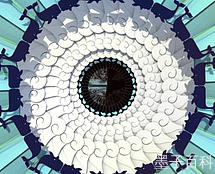
MothersDay is the English translation for Mother’s Day. It is a special day to express gratitude towards mothers. On this day, mothers usually receive gifts, and carnations are often considered as the flower representing motherhood. In China, the forget-me-not flowers, also known as Scorpion Grass, are used to symbolize Mother’s Day.
The historical significance of Mother’s Day lies within the rich ethical civilization of the Chinese nation, which highly values the bond between parents and children and the virtue of kindness. Chinese history has witnessed numerous influential and remarkable motherly figures. It is essential for us to have our own Chinese Mother’s Day, one that embodies the essence of our excellent cultural heritage and national spirit, rather than adopting a foreign holiday. This is essential for the great rejuvenation of the Chinese nation.
When looking back at the history of the Chinese nation, Madam Zhang, the mother of Mencius, stands out as an outstanding exemplar of a virtuous Chinese mother. After Mencius lost his father at the age of three, Madam Zhang took full responsibility for his upbringing. The stories of “Mencius’ mother’s three moves” and “breaking the spinning wheel to educate her son” have been passed down for over two thousand years. Madam Zhang paid attention to every aspect of her child’s growth and education, and ultimately shaped him into a great man. She became a role model for mothers in terms of educating their children and was praised as a “one-person educator.” Even in modern times, she is still hailed as a paragon. Madam Zhang’s exemplary motherhood can be used as the representative image of Chinese Mother’s Day, to showcase the greatness of motherhood and inspire generations of mothers as well as awaken the love and filial piety in every individual.














